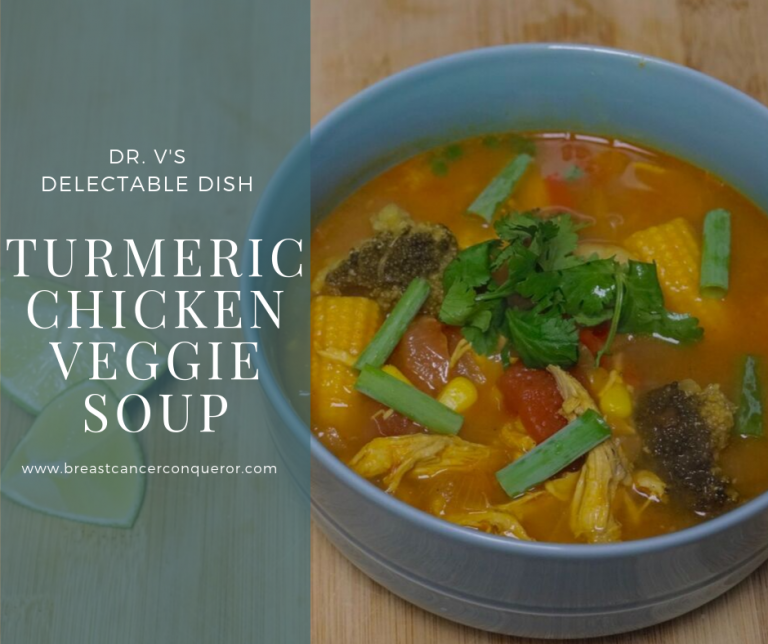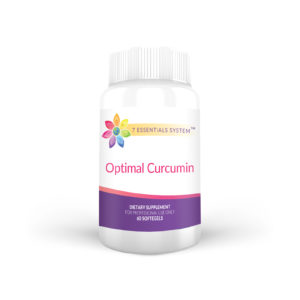Curcumin is the main healing substance found in the Indian spice turmeric. It is also one of the most studied herbs around. So much research has been done proving its effectiveness for lowering inflammation that at this point this healing characteristic is simply a given, even amongst conventional doctors. Now clinical trials may prove curcumin’s ability to help with certain kinds of cancer and cancer-related conditions, including Breast Cancer.
What Are Clinical Trials and Why are They So Important?
If there have been hundreds of completed research studies [1] that have proven curcumin’s efficacy against many dis-ease conditions, including cancer, what is so special about a clinical trial that may say the same?
Most research studies test a hypothesis using either in vitro means (i.e. how a particular substance or condition reacts in a petri dish) or, unfortunately, by using animal testing models.
 [2]
[2]Clinical trials are research studies that involve people.
The “gold standard” of clinical trials is called a “double blind randomized trials (DBRT).” [3] Like most trials, DBRT utilizes two groups of individuals, one which acts as a control and the other that receives the “treatment.”
What makes the DBRT unique is that nobody, including those administering the study, knows who is part of the control group and who is receiving treatment. According to many experts [4], a DBRT “eliminate[s] the influence of unknown or immeasurable confounding variables.” This can help to eliminate bias, basically producing the most sound and trustworthy results of all study types.
Curcumin Clinical Trials Happening Now
I have written many articles on the benefits of curcumin (as well as the “curcumin and piperine combo”) for healing the body on many levels, including for those who are on a Healthy Breast [5] journey. For more information about curcumin in general, be sure to check out this article [6].
What is so exciting about current curcumin research is that the studies that are now highlighted on official National Institute of Health (NIH) clinical trial sites [7] are mostly “gold standard” trials which focus on reproductive organ cancers and precancerous conditionsin particular.
Here is a quick snapshot of each of the six studies currently listed on the NIH website:
#1 Curcumin for Cervical Cancer Preconditions
This study [8] is currently being conducted by a research team from the Winship Cancer Institute at Emory University Hospital in Atlanta, Georgia. It focuses on women with Cervical intraepithelial neoplasia (CIN), a “precancerous condition in which abnormal cells grow on the surface of the cervix.” Some of the participants are also HIV-infected, while some were not.
Because it is a DBRT, none of the women nor the study researchers know who is being given intravaginal curcumin and who is being given a placebo. The study started in November 2017 and runs until August 2021 (projected). It is currently in Phase II. More information about this study can be found HERE [9].
#2 Curcumin to Help Women with HPV
The second study [10] focuses on curcumin’s effects on women with HPV, or human papillomavirus [11]. HPV can be a precursor to cervical cancer. The researchers are observing whether curcumin may be able to clear this condition up. This study is being held at Children’s Healthcare, also in Atlanta.
If the trial is a success, it will give additional validity to curcumin’s overall ability to slow down and even destroy both cancer cells and precancerous conditions. The trial is expected to start in December 2020 and will go until 2022 or 2023. More information about the trial can be found HERE [12].
#3 Curcumin for Prostate Cancer
The next study takes a look at curcumin’s effects on men with prostate cancer who have already had prostate surgery. This study is being conducted by researchers at the University of Texas Southwestern’s Simmons Cancer Center in Dallas, Texas.
Researchers hypothesize that curcumin may block enzymes that cause prostate cancer cell growth. Phase II actually started in 2014. The results were expected to be posted in February 2020 but have not been posted as of March 2020. More info about this study can be found HERE [13].
#4 Curcumin May Help People with High Gastric Cancer Risk
 [14]
[14]This trial takes a look at how the antioxidant components of curcumin may prevent gastric cancer for those who have the conditions “chronic astrophic gastritis” and “gastric intestinal metaplasia” (both of which can be precursors to gastric cancer). Again, researchers are looking at how curcumin may inhibit tumor growth by blocking key cancer growth-causing enzymes.
The study is being put on by the University of Puerto Rico in San Juan. It is currently nearing the end of phase IIb, with an expected culmination date set for March, 2020. More information about this study can be found HERE. [15]
#5 Curcumin and Piperine May Help Patients with Cancer Who Have Ureteral Stents
This study being conducted at the Mayo Clinic in Rochester, Minnesota, in collaboration with the National Cancer Institute (NCI). Its basis is curcumin’s known benefits for helping to reduce inflammation.
The investigation [16] takes a look at how curcumin is enhanced when combined with piperine and what this combo can do for cancer patients suffering from the pain and inflammation caused by the insertion of ureteral stents. Ureteral stents are small tubes that are inserted to prevent the flow of urine from the kidneys to the bladder.
“Giving curcumin together with piperine may reduce inflammation and discomfort from a ureteric stent in older patients with cancer,” states the NIH in their description of the study. This study is expected to end in 2021 and is currently recruiting participants. More information can be found HERE [17].
#6 Curcumin May Help with Joint Pain in Breast Cancer Survivors
Finally, the last study is focusing on how curcumin may help with joint pain associated with Aromatase Inhibitor use in women with a past history of Breast Cancer. Aromatase Inhibitors [18] are a type of hormone therapy that is common as part of conventional Breast Cancer treatment. To form their hypothesis, the researchers are going off of past studies which clearly show that curcumin can help with arthritis and other inflammatory conditions.
The study is being conducted by City of Hope Comprehensive Cancer Center in California. It is currently in phase I and is actively recruiting participants right now, according to ClinicalTrials.gov. More information can be found HERE [19].
Other Studies on Curcumin and Breast Cancer
 [20]
[20]Of course, there have been many other studies which have shown how curcumin can help in directly inhibiting Breast Cancer tumor growth. A 2015 study [21] published in the International Journal of Biochemistry and Cell Biology found that curcumin induced “apoptosis,” or cancer cell death, of Breast Cancer cells.
Another investigation [22] conducted in that same year by an Italian team also found that curcumin inhibited the growth of TNBC cells, or Triple Negative Breast Cancer cells.
Finally, still other research has shown that curcumin can be used in coordination with a natural healing protocol called “hyperthermia [23]” to increase the effectiveness of traditional cancer therapies, such as chemotherapy and radiation. One study, sponsored by Harvard Medical School [24], found that curcumin can help lessen the side effects of these treatments as well.
Curcumin in Your Healthy Breast Toolbox? You Bet!
The above information regarding current clinical trials on curcumin may be the very informational you need if you are currently going through a healing journey with Breast Cancer.
On the other hand, curcumin is not just for those who are on a healing journey with Breast Cancer now. The main takeaway for ANYONE who is interested in preventing Breast Cancer and creating vibrant health is this: Curcumin is a MUST for your Healing toolbox, plain and simple!
If you are serious about using curcumin for your health, don’t just rely on spicing up your meals with turmeric [14], although this can be a very tasty as well as healthy strategy.
I also suggest that you utilize a high-quality curcumin supplement, such as The 7 Essentials System™ Optimum Curcumin [20]. Optimum Curcumin [20] is made with 100% non-GMO ingredients. What’s more, Optimum Curcumin [20] is a bioavailable curcuminoid product that combines three different kinds of curcumin, turmeric oil, vitamin E and MCT oil.
However you chose to include it, curcumin is a must if you suffer from inflammation, including the systemic inflammation that accompanies most disease conditions. It is also ideal for anyone who wants to prevent and heal Breast Cancer naturally!
Dr. Veronique Desaulniers, better known as Dr. V, is the founder of The 7 Essentials System ™, a step-by-step guide that teaches you exactly how to prevent and heal Breast Cancer Naturally. To get your F.R.E.E. 7-day mini e-course, and to receive her weekly action steps and inspiring articles on the power of Natural Medicine, visit https://breastcancerconqueror.com.